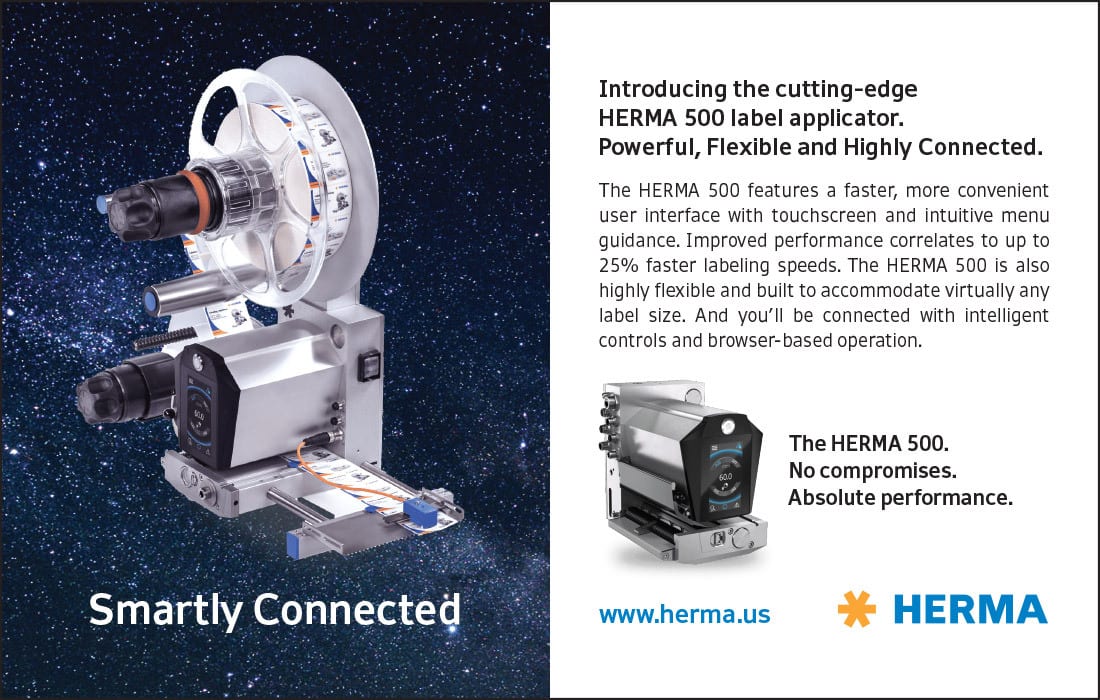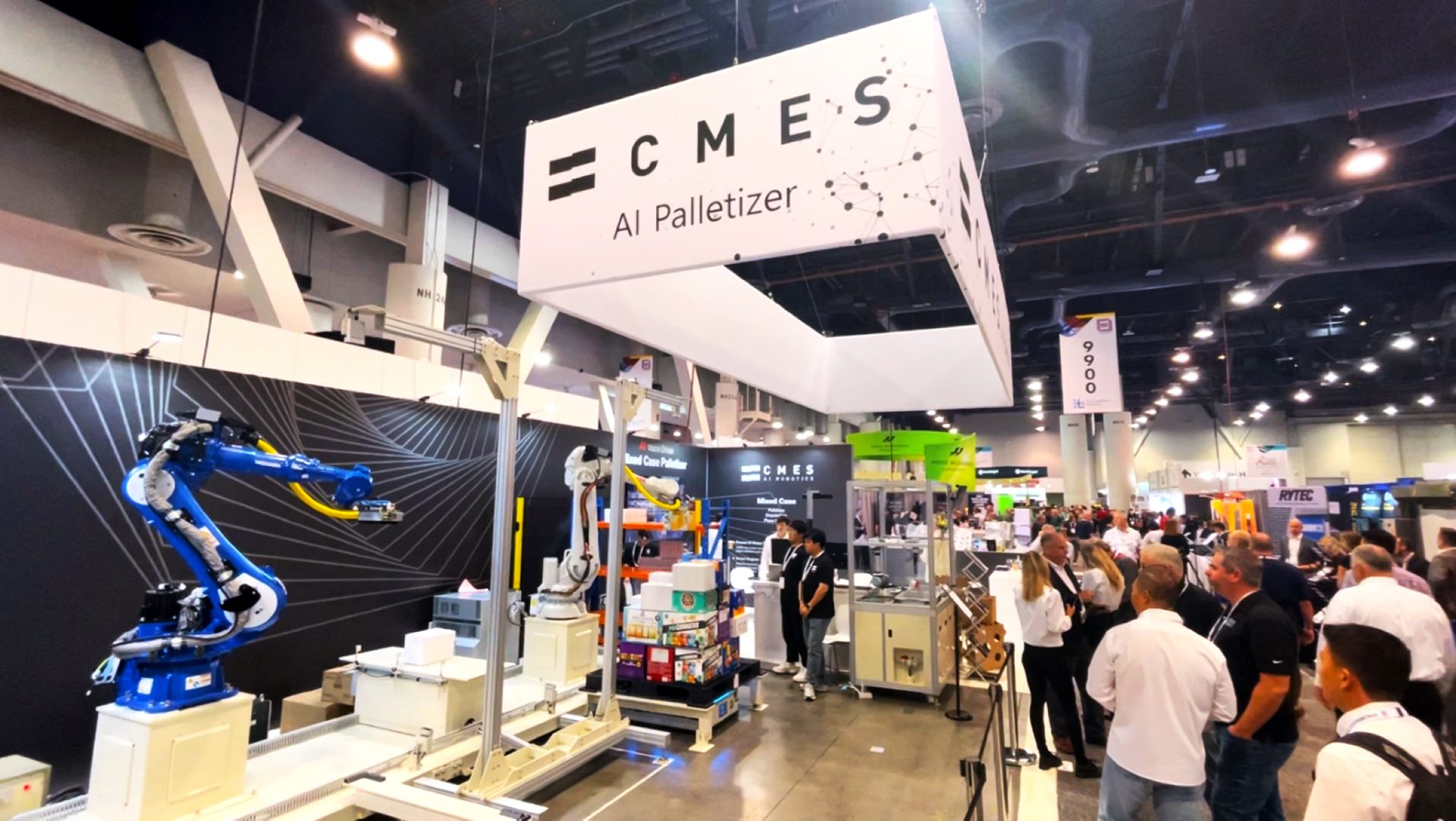
Multiple Routes
to Sustainability
Wine and spirits sellers around the globe are on the cutting edge when it comes to developing and embracing eco-friendly packaging solutions.
By Brad Addington
Some of the biggest names in wine and spirits are tackling the issue of sustainable packaging head-on, and their efforts illustrate that eco-friendly packaging can be achieved in countless ways.
One Australian wine firm is conducting trials on alternate closures to cork and also is working to develop a post-consumer cork recycling service. The firm also has taken steps to increase the recyclability of its gift boxes.
Meanwhile, a California wine company has switched from glass bottles to bottles made from 94% recycled paperboard. The bottles are five times lighter than glass and boast a carbon footprint six times lower than glass bottles.
Not to be outdone, a luxury tequila brand in Mexico has turned to a compostable and biodegradable packaging solution incorporating agave fiber.
Learn more about these innovative approaches to sustainable wine and spirits packaging that made headlines in 2023.
ADVERTISEMENT
Packaging Figures Big in Australian Wine Company’s Sustainability Goals
Treasury Wine Estates (TWE), one the world’s largest wine companies with headquarters in Melbourne, Australia, has included several packaging goals in its 2023 Sustainability Report, mirroring other wine companies’ efforts to pivot toward packaging that is more eco-friendly.
“We continue to tailor recyclable packaging options to meet consumer needs and work with suppliers to build awareness of our ambitions, improve data and promote circular economy outcomes and sustainable packaging design,” the company says in the report. “Sustainable Global Packaging Guidelines help to inform choices amongst the business, and we continue to refine and improve governance.”
READ MORE
Despite not achieving its commitment to implement 100% recyclable, reusable, or compostable packaging by the end of calendar year 2022, TWE said it continued to make good progress over the year in reducing the environmental impact of its packaging.
“The year has seen significant shifts and shocks to the post-consumer recycling industry in many of our markets — such as the effective cessation of soft plastic recycling in Australia,” TWE says. “We remain committed to the fact that packaging should be minimized, and where packaging is used, it must be designed to be recovered and incorporate increasing levels of recycled content wherever possible.”
TWE created an internal Sustainable Packaging Steering Committee in 2022. The committee is “helping to deliver TWE’s sustainable packaging strategy with not only a focus on recyclability, reusability, and composability of our packaging materials but also a focus on reducing our material usage and overall carbon footprint.”
Improving recyclability
“There are a variety of problematic materials used in wine packaging; however, the extent of these varies by location, given the range of post-consumer recycling schemes that operate across our markets of manufacture,” TWE says in its sustainability report.
This year, the company has worked to address what it deems several problematic materials used in its products, including:
- Transitioning from single-pack polystyrene shippers to a 100% cardboard packaging material that has been designed to have the same thermal properties.
- Developing exit plans and beginning to phase out PET sleeves on bottles for its brands that use them.
- Completing an end-to-end review on Penfolds Bin Series gift boxes to increase recyclability by removing magnets, laminates, plastic fitments, and tertiary plastic transport sleeves.
- Conducting several sensory trials on alternate closures (screwcaps), capsules and bagnums (1.5L pouch) to continue to improve their recyclability without compromising on quality.
“We continue to innovate and find ways to reduce the total use of materials where we can,” TWE says in the sustainability report. “For example, the introduction of an integrated handle-less design across some of the bag-in-box range represents a saving in plastics used, increased recyclability and a more versatile handle for consumers. We continue to trial new materials across our global operations to ensure they meet a range of sensory and quality parameters.”
Additionally, in Australia over the past year, TWE has worked with the Wine Industry Sustainable Packaging Alliance (WISPA) to help identify and develop a post-consumer cork recycling service. “More work is required, but we are optimistic that a commercial solution (i.e., a product) can be found to this environmental challenge,” the company notes.
The full 2023 Sustainability Report can be found here.

Treasury Wine Estates’ efforts to address “problematic” materials used in its products include transitioning from single-pack polystyrene shippers to a 100% cardboard packaging material that has been designed to have the same thermal properties.
Courtesy of Treasury Wine Estates
COLLAPSE ARTICLE ABOVE
Tequila Komos Partners with Green Loop to Pioneer New Sustainable Packaging Solutions
Tequila Komos, the category-leading ultra-luxury tequila brand, continues to set new environmental impact standards for the tequila industry by partnering with Green Loop, an emerging leader in sustainable packaging solutions.
Based in Jalisco, Mexico, Green Loop is the first company to innovate with ecosolutions using byproduct waste from the tequila industry and is the first Agave Bagasse Waste Recovery Center. As environmental-impact innovators, Green Loop is the only company 100% specialized in recycling bagasse waste from the tequila industry, offering innovative alternatives that help reduce the environmental impact and carbon footprint of tequila production.
Known for its highest-rated, ultra-premium portfolio and its commitment to advancing environmental stewardship projects, Komos is the first tequila producer to use BIOPALL by Green Loop — an eco-friendly, compostable and biodegradable packaging solution — in their operational supply chain. The Green Loop hybrid biopallets are made of 70% agave fiber and 30% wood sourced from sustainably managed forests.
READ MORE
This pioneering innovation of repurposing byproduct waste as a raw material greatly reduces the volume of residual agave bagasse (more than 80 tons of agave fibers are recycled for every 1,000 biopallets used) and helps reduce tree logging by 30-70%. Green Loop also harnesses renewable energy generated by agave briquettes to cover 90% of its energy use.
This partnership reaffirms Tequila Komos’s unwavering commitment to environmental and social responsibility, complementing the pioneering work started more than 10 years ago by Casa Komos Brands Group (CKBG) Co-Founder & Co-CEO Richard Betts in Oaxaca, and continuing today through the not-for-profit Komos Foundation.
Along with distillery partners in Jalisco, the foundation repurposes byproduct waste from tequila production and turns it into adobe bricks given to the community to build housing, schools, hospitals and other local infrastructure projects. It also operates as a learning center, teaching other tequila producers how to repurpose their byproduct waste with the ambition of getting as many producers involved as possible.
“Our intention remains to lead the charge in finding and implementing sustainable solutions for tequila production and ensure the wellbeing of individuals and communities in Mexico,” Betts said. “Joining forces with Green Loop allows us to do that, as well as further contribute to waste reduction and the promotion of a circular economy.”
Green Loop CEO Diego Arregui said, “We are thrilled to count CKBG among our very first partners, and hope that more tequila producers will follow their lead and embrace eco-friendly alternatives to traditional packaging materials. We truly believe that, together, we can make a lasting impact on environmental preservation in Mexico and beyond.”
For more details on Green Loop’s sustainable packaging solutions, please visit greenloop.mx. For additional information on Tequila Komos, please visit komos.com.

Luxury tequila brand Tequila Komos has teamed up with Green Loop to pioneer a new sustainable packaging solution incorporating agave fiber.
Courtesy of Tequila Komos
COLLAPSE ARTICLE ABOVE
California wine company begins contract filling of Frugalpac’s Frugal Bottles
California wineries will now be able to use the world’s first and only commercially available paper bottle for wines and spirits thanks to a partnership with King City’s Monterey Wine Company and British sustainable packaging firm Frugalpac.
Monterey Wine Company (MWC), a Californian custom wine production facility, has agreed to a deal with Frugalpac to see it become the first U.S. filler for the contract filling of Frugal Bottles with wines and spirits.
Frugal Bottles are made from 94% recycled paperboard with a food-grade pouch. They weigh just 83g before filled and are five times lighter than glass. This means it has a carbon footprint six times lower than glass bottles. They also offer 360° branding for exceptional, impactful shelf presence.
MWC is based in the U.S. heart of wine production, in King City on the Central Coast of California. With over 80% of all U.S. wines produced in California, lightweight Frugal Bottles offer drinks producers the opportunity to cut their carbon footprint by 84%.
READ MORE
MWC is within a 200-mile radius of all of California’s main appellations, and the Frugal Bottle is developing a growing following in the North American market.
Recent research by Lux Research found that more than 35 million Americans are interested in finding more sustainable wine packaging.
Conscious of the impact glass bottles pose to the environment, Monterey Wine Company is embarking on the “Frugal Way” to produce the recycled paper-based bottles that are the solution for minimizing the carbon footprint throughout the entire supply chain lifecycle — from grape to table.
America is already selling drinks in the paper bottle with Signal 7 Wines, Demon Spirits Rum and Half Shell Vodka.
More than 32 different drinks producers from around the world have launched 100 different SKUs of wines, spirits and olive oils in the Frugal Bottle. They are available in 22 countries, including Japan, the UK, Australia and South Africa as well as across Europe and Scandinavia.
In February of this year, the Frugal Bottle with Signal 7’s bottle won Best in Class for Technical Design in Packaging Innovation and an Award of Distinction in the Sustainable Design category at PAC Global’s Packaging Awards in New York.
Monterey Wine Company’s Director of Personnel and Finance-General Manager Shannon Valladarez said: “More and more drinks brands are looking to reduce their carbon emissions, and a glass bottle accounts for up to 50% of a wine’s carbon footprint.
“We’ve been hugely impressed by the success of the Frugal Bottle. That’s why we’ve decided to become the first U.S. production facility to fill these revolutionary paper bottles for the American market.
“We think this is going to be extremely popular with California wineries looking to make their bottles more lightweight and sustainable. For example, Jackson Family Wines has pledged to cut its carbon production in half by 2030 and to be carbon positive by 2050.”
Frugalpac CEO Malcolm Waugh said: “Three years on from the launch of our Frugal Bottle, we’re delighted to have partnered with Monterey Wine Company to offer our paper bottle to U.S. drinks producers.”
Waugh noted that customers who have moved to Frugal Bottle have in some cases seen a doubling of sales volume by including Frugal Bottle in their portfolio.
“We’ve already seen U.S. wine brands like Signal 7 Wines successfully launch all their wines in our paper bottles, and we expect others will join them,” Waugh added.
In addition to inquiries to make 120m Frugal Bottles, Frugalpac also has strong inquiries from more than 100 other international brand, contract packing and packaging companies to buy Frugal Bottle Assembly Machines. Each machine will be able to produce 2.5 million Frugal Bottles a year.


